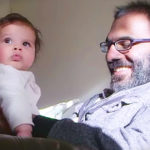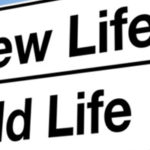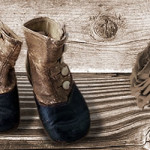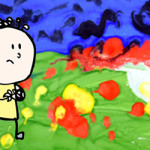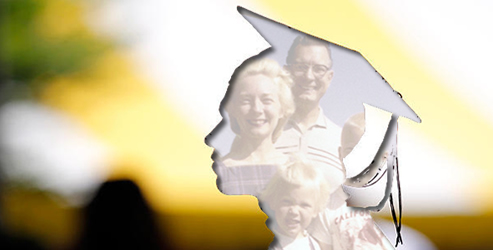
While listening to a struggling mother talk in my counseling office recently, I had a flashback to my own teen years.
My mother was strict, but she gave me a long leash. As a result, I always thought I was very independent of my family. As I drove home that evening, however, I remembered a pattern of mine that showed how connected and dependent I was to those people.
Knowing wasn’t enough
I was fortunate to be somewhat talented on the bell-curve of my small town high school student body. And each year I participated in many solo and group performances.
The memory that flashed into my consciousness was that I never performed without simultaneously scanning the crowd for my family. Never.
I knew they were there. So why wasn’t just “knowing” enough for me?
The experience of being watched vs. being seen
It didn’t take long for me to realize that I wanted to experience seeing them seeing me. And the more family members I saw, the better I felt.
I may have acted like I didn’t need their love and approval, but the crowd search said otherwise.
I also vividly remember a concert when no one in my family was able to attend. Surprisingly, decades later, I still remember the flat experience of being watched by hundreds – yet not feeling seen.
Another family, another version
A close friend died this month, just short of 80 years of age. His relationship with his father had been a rocky one, and he insisted his father was a narcissist. As evidence, over the years he repeated the story about the day he graduated from grad school—the day his father approached him and said, “This is the proudest day of my life.” To which, my friend would add: “My graduation couldn’t even be about me, it had to be about him!”
I knew his father. He was by no means perfect. And, clearly, my friend had not felt seen by his father that day. Yet, I believe my friend failed to interpret his father’s comment for what it was: deep archetypal recognition.
“This is the proudest day of my life” was not just about his dad, nor was it just about my friend. It was about them both.
“This is the proudest day of my life” was the pit of the fruit–the core message that together they had walked one more generation of family from innocence into a more demanding world.
Each spring graduating classes and their families listen to individuals from political, academic, and entertainment arenas deliver podium wisdom and humor. While the speakers are, indeed, well-intentioned, their farewell message is usually forgotten.
Whether a student barely makes grades to graduate or graduates with honors; whether the graduating student’s parents are All in the Family edgy-Edith/bigot-Archie types… or more John-Boy Walton’s farm family who struggles to put food on the table and coins in a jar so John-Boy can go to college—the drama of a graduation is ancestral.
In closing…
A few days after my friend’s funeral, I booted up my computer and found the Perri Klass’s NYT article “Proud of my graduate but missing my mother.” The timing was eerie, considering what I had been thinking about. (See the link below.)
As I chewed on the concept of the “presence of absence,” I thought about my deceased friend’s daughter. There is no doubt that she will miss her dad. And she will “mark her loss over and over” again on those days when her three children graduate from high school and then college. She will miss seeing her dad see her see each child. And her children will miss seeing Pop-Pop see them.
Read the referenced New York Times ArticleIf you liked this post, please forward! Thanks!
Subscribe to Blog



